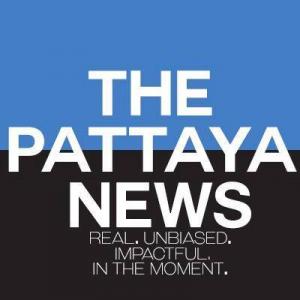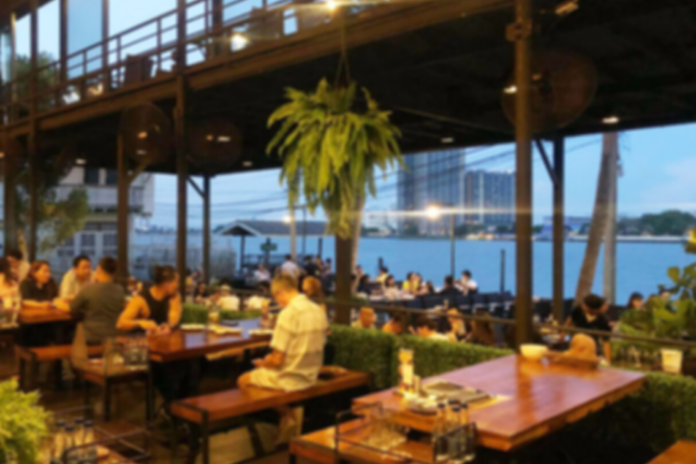Hello, out there Pattaya News readers!
The following is our weekly feature in which we take a look at the top developing stories and things to follow over the next week. We are focusing on what is happening for the first week of September, ending September 4th, 2021.
As we publish dozens of stories a week, this allows our readers to get a quick glimpse of the most important stories taking place in Thailand and Pattaya and to monitor and follow for the week ahead, as chosen by our editorial team.
This week, we are going to devote the entire column to this…
1. Covid-19 restrictions are set to ease from September 1st, especially in maximum control zones, but many questions remain:
The biggest news for next week will be the easing of Covid-19 restrictions in maximum control zones, also known as “dark red”, as deemed and chosen by the Center for Covid-19 Situation Administration, or CCSA, in Bangkok.
First, get caught up on the proposal (there is a lot to digest and we won’t be covering it all in this article) by clicking on this text right here.
Secondly, it’s important to note that as of today, August 28th, there are still four full days before September 1st and it is possible (and based on the past) very likely some things could change. We have not seen final orders from the Thai government yet in the Royal Gazette around the easing of restrictions and especially answers to questions around a plan in maximum control provinces (like Chonburi and Bangkok) that “high-risk” places will need to require customers to be either A. Fully vaccinated from Covid-19 B. Recovered from Covid-19 within 90 days or C. Take a rapid antigen or RT-PCR test within 72 hours, which would be good for a “7-day” yellow card pass to go to “high-risk” venues.
It’s also important to note that provincial disease control committees will be responsible for enforcing these rules (which many critics feel are unenforceable, especially at smaller restaurants) and we have yet to see any specific orders from the Chonburi Governor around these rules. It could be several days until this happens as well. Also, in terms of what “high-risk” means, this is still unclear. Restaurants were specifically named but what other places and venues will be? Will massage be required for these requirements also? It’s worth noting that many places that will likely be high-risk, like bars and nightclubs, are still not allowed to open at all, even under the proposed strict rules.
So, what are some of the questions? Well, let’s name a few:
A. There are 29 “dark red” zones. Although Bangkok is estimated at 90% of the population with at least one Covid-19 shot, many of the provinces and areas, including Chonburi, have far, far less (Only 33 percent of Chonburi has ONE shot for instance). The number of potential customers who are fully vaccinated is low and many customers would likely be uncomfortable taking a rapid antigen test before having dinner. Would provinces have some leeway on the rules? Additionally, it is worth noting that many of those fully vaccinated are elderly, disabled, bed-ridden, vulnerable, and/or at-risk and not likely to be regular diners or be willing to go out in the current situation anyways.
B. Is it even enforceable? There is already a lot of chatter that restaurants, such as street carts, moo kata, Thai venues, etc may not be checked at all while “foreign-owned” restaurants and franchises, or those venues in malls could be a big potential target for law enforcement in some areas. With current emergency decree-laws what would normally be a minor violation could mean a big payday for law enforcement.
C. Will one dose of a vaccine such as AstraZeneca, which has a long period between doses, be potentially allowed? (This is still unclear, but in the Sandbox project, it is. However, information so far released by the CCSA says “Fully” vaccinated. This would potentially mean months of waiting for many people to simply go eat in a restaurant and a huge loss of revenue to the venues.
D. Will kids be exempt? Or do they have to take a test before eating? If so, many people will skip dinner with the family. Speaking of exemptions, if a customer brings a medical exemption from a doctor/note, will this be accepted?
E. How will a certificate from overseas in terms of being vaccinated be accepted? Will it be accepted? How will staff be trained and know to tell what is real and what could be just a paper someone is waving at them? Will a business be held liable if a customer uses a fake certificate and is caught?
F. Will restaurant owners really say no to long-term regular customers? Is it fair to put enforcement on restaurants? Will we see more discrimination against foreign nationals potentially at Thai venues, even if vaccinated?
G. Will food delivery drivers, repairmen, ice vendors, lime vendors, suppliers, business partners, owners, etc be required to be vaccinated?
H. If a customer chooses to take a rapid-antigen test before eating, does it have to be done in front of a staff member? What happens if they are positive? Does a hospital immediately have to be called or can the customer leave? Who is tracking the test? Since a test is good for a week according to the information given, can a customer just bring a picture of a rapid test they claim they took and said it was done a few days ago?
I. Staff is also required to be fully vaccinated, but can one dose be allowed, especially for AZ and critical staff? They are also, in dark-red zones, according to the information given, supposed to test roughly twice a week. Where is this data being stored? Who is reviewing it? Is this a “trust” based system on the owner? Who does the single owner of, say, a noodle restaurant report to?
J. Who enforces this vaccination policy overall? Will law enforcement be properly trained on identifying vaccine passports and rapid antigen test results? Will customers who might be breaking the rules, either on purpose or by accident, be fined under what some call draconian emergency decree-laws for tens of thousands of baht and brought to jail like with alcohol-related laws previously?
K. If all these strict rules are in place, why is alcohol still banned at restaurants? Why can’t outdoor bars or similar venues adopt the same rules?
These are just some of the questions we have seen on social media, as well as come up from our editorial team. Countries that have successfully implemented vaccine passes or mandates for venues have mostly been those with widely available vaccines and large amounts of the population vaccinated so that people are not “left out”. That is not the case here in Thailand, with roughly 10% of the population fully vaccinated and most of those in Bangkok or “Sandboxes” like Phuket (which is not a dark-red zone and does not have the mandate rules anyways.)
Now, to give credit to the CCSA, they have stressed that this is a pilot program and that it is starting “FROM” September 1st, not on that date. This appears to mean that “high-risk” venues will have the ability to open when they are ready and can address the laundry list of questions above (and more that are likely still to come.) It also appears that there may be a “grace period” through October to get staff vaccinated, allow customers to get vaccinated, and perhaps still allow them to eat out or use other “high-risk” venues…but this is not yet clear.
TPN reporters spoke to several restaurant owners locally yesterday and nearly all plan to “wait” before opening in for dine-in for further clarification, expressing concern about the questions above as well as possible inconsistent enforcement and fines from police around the rules. Several also did not want to disappoint regular customers or turn them away until they are able to get a vaccine, so state until they are more widely available would continue to be take-away and delivery only.
What do you think? We want to hear your thoughts about this pilot program proposal in the comments below! That’s all for this week, we will continue to provide you more information as we get closer to the easing date on September 1st.




